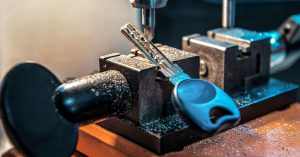Every home relies on appliances to run smoothly. When something breaks, it doesn’t just create inconvenience — it can throw off your entire day. In Edmonton homes, seasonal changes, water hardness, and daily usage patterns can all affect how long your appliances last and how often they need repairs. This post walks you through the most common issues people face, why they happen, and what you can realistically do about them.
Washer Problems: Leaks, Loud Sounds, and Stuck Cycles
Washers work hard year-round in Edmonton. Cold winters and frequent loads can take a toll. One of the most common complaints is leaking water. This might be from loose hoses, a worn-out door seal, or a clogged drain pump. On the other hand, loud banging sounds usually mean the drum is off balance or the shock absorbers are wearing out.
Some residents also deal with washers that stop mid-cycle. In many cases, this is due to a faulty lid switch or a control board issue. To clarify, these aren’t always signs your washer is finished — they’re often simple fixes that just require the right tools. If your machine smells musty or your clothes feel wetter than usual after a cycle, it might be time to reach out to a professional.
Dryer Failures: No Heat or Long Dry Times
Dryers are another appliance that can show trouble with use. The most common problem is when the unit runs but doesn’t produce heat. This can point to a broken thermal fuse, a faulty heating element, or a blocked vent. Therefore, if your dryer is blowing cool air, it’s not necessarily time for a new machine. It might just need a part replacement or a good internal cleaning.
Another issue is excessively long dry times. Lint build-up inside the vent hose or in the lint trap area often causes this. In other words, it’s a sign your dryer is struggling to move air properly. Regular maintenance like cleaning out the vents can go a long way in preventing fires and extending the unit’s life.
Fridge Issues: Warm Temps and Leaking Water
Refrigerators are expected to be dependable, but they’re not immune to problems. A very common concern is a fridge that runs but doesn’t stay cold. Sometimes it’s as simple as dirty condenser coils. Similarly, a faulty thermostat or evaporator fan motor can also be to blame. These parts control airflow and cooling, so when they wear out, the fridge stops functioning efficiently.
Another frequent complaint is water pooling underneath. This usually happens when the defrost drain is clogged with debris. As a result, melted frost backs up and escapes onto the floor. You can often clear this by gently flushing the drain with warm water, but if it keeps happening, it may be best to consult someone experienced in appliance repair in Edmonton.
Oven and Stove Problems: Uneven Heating or Burners That Won’t Light
Whether you use your oven weekly or daily, heating problems are bound to show up over time. If your oven bakes unevenly or burns one side of your food, it could be a damaged bake element or temperature sensor. This becomes more noticeable in colder months when you’re baking more meals at home.
Stovetop issues vary depending on whether you have gas or electric. Gas burners that won’t ignite usually point to a clogged igniter or a failing spark module. On the other hand, electric burners that won’t heat may have a bad element or connection beneath the cooktop. Testing with a multimeter can often reveal the issue, but safety is key when dealing with electrical or gas components.
Dishwasher Woes: Poor Cleaning and Standing Water
Dishwashers should leave your dishes clean and dry. However, many Edmonton homes experience poor cleaning results. This is often due to low water pressure, hard water build-up, or a worn-out spray arm. In other words, minerals and debris can block essential water flow and reduce cleaning power. Running a vinegar cycle monthly can help reduce residue and improve results.
Standing water at the bottom of the dishwasher after a cycle is another red flag. This typically means the drain pump or hose is clogged. While you can check the filter yourself, persistent drainage issues may need professional troubleshooting. If the appliance makes loud grinding noises, it’s a sign the motor or chopper blade could be damaged.
Freezer Issues: Ice Build-Up and Temperature Swings
Freezers are often out of sight, so problems can sneak up. One of the most frustrating issues is ice building up along the back wall. This is usually tied to a failed defrost heater. When it stops working, frost builds up over time and blocks airflow. Eventually, this reduces cooling performance.
Another issue is temperature fluctuation. If your freezer sometimes gets too warm and then too cold, the thermostat or sensor might not be working properly. Likewise, gaps in the door seal can allow warm air in, causing condensation and frost. Checking the seal with a dollar bill — if you can pull it out easily — is a simple trick to test door tightness.
Microwave Malfunctions: Not Heating or Touchpad Failure
Microwaves seem like simple machines, but they have some complex parts inside. One of the most common issues is when it runs but doesn’t heat food. This usually points to a faulty magnetron, which generates the microwave energy. Unfortunately, replacing this part is often costly and may not be worth it for older models.
Another frequent concern is an unresponsive touchpad. That is to say, the microwave turns on, but you can’t enter commands or change settings. Moisture, wear and tear, or even a brief power surge can lead to this problem. In these cases, a soft reset by unplugging the unit for a few minutes sometimes restores functionality. However, repeated failures usually require repair.
Appliance Noises: When to Worry and When to Ignore
Noises are a common reason people start looking for help. For instance, clicking sounds in a fridge or popping noises in an oven can be normal during heating or cooling. However, loud grinding, buzzing, or clunking sounds typically indicate something is off.
In washers and dryers, a thumping noise could be a drum bearing issue or a loose object stuck inside. In dishwashers, rattling may mean a spray arm is hitting a dish. Therefore, if you notice a new or unfamiliar sound, it’s helpful to isolate when it happens and what appliance cycle it’s tied to. That information is often key when you get in touch with someone to diagnose the problem.
Maintenance Tips to Reduce Common Issues
While repairs are sometimes unavoidable, there are things you can do to reduce how often they come up. For example, cleaning lint traps after every dryer cycle helps airflow. Likewise, checking and wiping fridge door seals keeps them from drying out and cracking.
Running an empty dishwasher with white vinegar can clear mineral deposits. Replacing water filters regularly improves the taste of water and reduces pressure on the fridge’s internal components. Above all, avoid overloading appliances. Heavy loads strain motors and wear out parts faster. A little care can go a long way in extending the life of your machines.
When to Repair and When to Replace
There comes a point when fixing an appliance is no longer worth the cost. As a general rule, if the repair costs more than half the price of a new unit, replacement might make more sense. However, age and condition matter too. A five-year-old fridge with a minor fan issue is still worth fixing. In contrast, a fifteen-year-old unit with a faulty compressor may not be.
Knowing the average lifespan of your appliances helps make these decisions. Most washers and dryers last around 10 to 13 years. Refrigerators can run for 13 to 15 years, while dishwashers tend to last closer to 8 to 10. Microwaves have the shortest life span at 7 to 9 years. Keep receipts, model numbers, and warranty documents in one spot so you can reference them quickly if needed.
FAQ
What should I do if my fridge isn’t cooling properly?
Check that the coils are clean and the vents aren’t blocked. If those are clear, the problem could be with the thermostat or fan motor.
Why is my washing machine shaking so much?
Shaking usually comes from an unbalanced load or a broken suspension rod. Try redistributing the laundry first, and if it continues, it may need a part replaced.
Can I fix a dishwasher that doesn’t drain?
You can check the filter and drain hose for clogs. If the problem continues after cleaning, it may be the drain pump or motor causing the issue.
How do I know if my dryer is overheating?
If your clothes feel unusually hot, the dryer smells burnt, or it shuts off mid-cycle, it might be overheating. Lint blockages are the most common cause.
Is it safe to repair a microwave on my own?
Microwaves store high-voltage electricity even after unplugging. It’s safest to avoid internal repairs and have a trained technician handle them.
Let me know if you’d like a follow-up version focused on seasonal issues, like winter-related appliance strain or energy efficiency tips for Edmonton homes.



